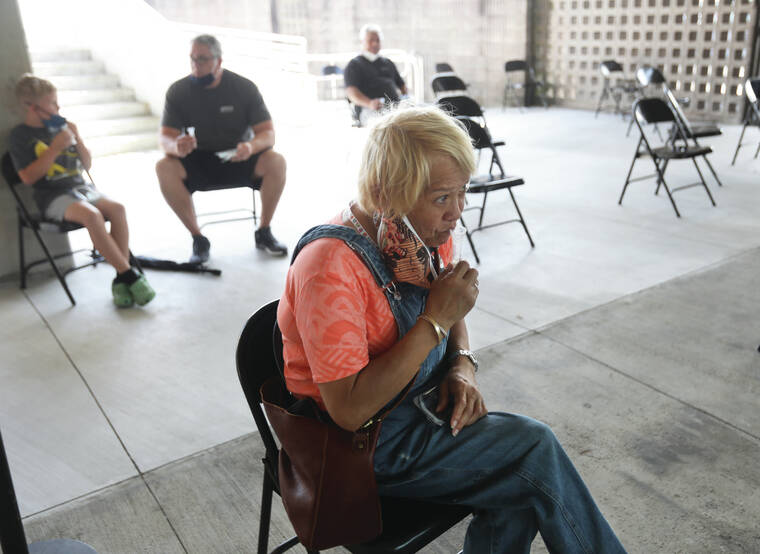Gov. David Ige said Monday he is considering changes to the state’s Safe Travels program to take into account users’ booster status.
During a livestreamed interview, Ige said he is discussing the possibility of requiring people to have received a vaccine booster within the last five or six months in order to be considered “fully vaccinated” under Safe Travels.
Such a change, Ige said, would be in line with recommendations from the U.S. Centers for Disease Control and Prevention, which have strongly encouraged the distribution of booster doses to increase resistance to the highly virulent omicron variant.
But Ige said he does not want to make such changes willy-nilly. Although he made no confirmation that such a change will take place at all, Ige said that if it does, the public will be given enough time to adjust.
“Something like that, we know the community needs time to react to that,” Ige said. “So, we would have to provide at least two weeks for those who may not be up-to-date to have the opportunity to go and get vaccinated if they need to.”
Ige also said he has no immediate plans to once again make unilateral COVID-19 decisions for the entire state, as he did during the first wave of the pandemic. Despite record-high case counts, Ige said he remains comfortable leaving individual county decisions to their own mayors.
“There is no playbook, and so I do respect the mayors’ abilities to make decisions,” Ige said. “They continue to look at the situation in each of their counties and are taking appropriate actions.”
Between Saturday and Monday, 1,120 new cases were reported on the Big Island, and 12,532 statewide. Saturday, Sunday and Monday, respectively, had 408, 364 and 348 new cases on the Big Island.
However, there were only six new COVID-19 hospitalizations reported Monday. Ige has repeatedly said that rising hospitalization rates are the primary determinator of whether restrictions should be tightened.
Ige said ICU occupancy and oxygen usage are also both at a manageable level for now.
On the other hand, Ige acknowledged a shortage of available COVID-19 tests, noting that several testing sites regularly run out of stock or experience hours-long lines.
Hawaii has been unable to purchase antigen tests in bulk since last autumn, having been outbid multiple times by other states, Ige said. Ige encouraged residents to check their county’s websites to find available testing locations.
Email Michael Brestovansky at mbrestovansky@hawaiitribune-herald.com.






